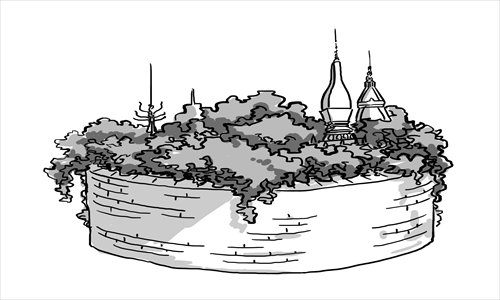China’s investment helps Laotians help themselves

Two of my colleagues have just returned from Laos after finishing interviews there. They had taken a night bus from Xayaburi to Vientiane, the country's capital.
The Xayaburi Dam, co-built by Thailand and Laos, has caused huge controversy.
It is said that due to firm opposition from Vietnam and Cambodia, which are situated at the lower reaches of the Mekong River, concerning the dam's environmental impact, the project has been stopped.
On the map, the distance from Xayaburi to Vientiane is only 200 kilometers. If one makes a detour through Luang Prabang, it is about 500 kilometers. However, my colleagues spent almost 15 hours on the bus.
"The road condition is terrible. Half of the road is unpaved. The mountainous road is quite bumpy. And we could hardly see anything near us. Sometimes the bus went at only 20 or 30 kilometers per hour," they told me.
However, what concerned them more was the poverty they saw there.
"People are living in simple and crude thatched cottages by the side of the road. When vehicles pass by, you see dust everywhere. I can't imagine how they manage to live there every day."
Data from the United Nations Children's Fund shows that almost half of the children in Laos do not have sufficient nutrition, and that figure hasn't changed much in the past five years.
Laos is a country rich in water resources, but its domestic electricity consumption per capita is one of the lowest in the world, almost one-tenth of China's. Laos is developing very slowly, and people's lives are lagging behind.
This is the reality that people who live only a few hundred kilometers from China's borders have to face. No one has the right to prevent people in Laos from entering an era of rapid development like their Chinese neighbors have done.
People who travel to Laos are easily enchanted by exotic scenes not commonly seen in other parts of the world. They can relax in an environment free of cell phones and the Internet. They can certainly loudly call for preserving the wildlife of Laos: the Mekong River, forests, elephants, endangered species and so on.
There are numerous things that need to be saved. But what about humans? Who can save those children and villagers who live in hunger and are dressed in rags? Can a well-preserved environment allow them to live in dignity?
My colleagues' description of Laos reminded me of a slogan that was popular at the beginning of China's reform and opening-up: If you want to become rich, build roads first.
At that time, many of China's remote areas began building roads and hydropower stations. They set up cooperative enterprises, and gradually stepped onto the path of development.
It was also at that time that the notions of "blood transfusion" and "blood forming" emerged.
The development of remote and poor areas depends on outside support, which served as the source of "blood transfusions," to build infrastructure, and later these areas had to make their own efforts, or "form their own blood," to maintain the vitality of the development.
This is the path that China used to take. It can become the choice of Laotians too. There is no perfect or balanced development path for any country, and Laos is no exception. At the beginning of development, the priority is to let more people have sufficient nutrition and let remote areas have roads and electricity.
On Tuesday, Thailand announced its grand plans to invest about $70 billion to build basic infrastructure such as roads and railways, so as to pull itself out of the "middle-income trap." This could inspire Laos.
China is helping Laos develop by building infrastructure. It is partly assistance and partly commercial activity. China has its own interests, and that's nothing to be ashamed of. The key is how to promote Laos to "form their own blood" through the presence of Chinese investment, rather than to deny Chinese investment as a whole.
The author is a senior editor with the People's Daily. He's now stationed in Bangkok. dinggang@globaltimes.com.cn